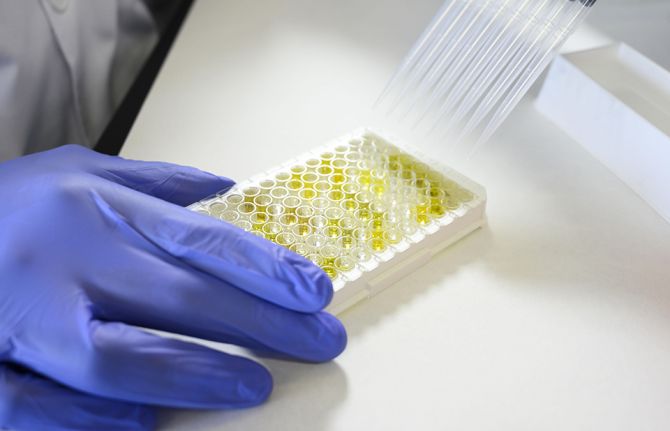

Press Statement
UNAIDS welcomes the first WHO COVID-19 Technology Access Pool licensing agreement
24 November 2021 24 November 2021GENEVA, 24 November 2021—UNAIDS welcomes the first licensing agreement under the World Health Organization (WHO) COVID-19 Technology Access Pool (C-TAP) initiative, negotiated between Consejo Superior de Investigaciones Científicas (Spain’s High Council of Scientific Research) and the Medicines Patent Pool.
The C-TAP initiative builds on a successful model to increase access to HIV, tuberculosis and hepatitis C products in low- and middle-income countries and has proved to be effective in overcoming some barriers to access to health technologies for COVID-19. However, the initiative has so far been underutilized, and pharmaceutical companies and other holders of COVID-19 technologies have been reluctant to join C-TAP.
“I welcome this new agreement, but urge other pharmaceutical companies and COVID-19 technology-holders to share their know-how,” said Winnie Byanyima, Executive Director of UNAIDS. “Think of how many lives could be saved if COVID-19 vaccines, medicines and other technologies were available through this mechanism to everyone who needs them.”
The new licensing agreement shows that it is possible to share knowledge, technology and intellectual property rights in the fight against COVID-19.
The sharing of intellectual property rights, data and know-how should be a fundamental component of pandemic preparedness and response. UNAIDS encourages research institutes and holders of life-saving technologies, including vaccine manufacturers, to follow suit and join C-TAP and urges the governments of countries that host pharmaceutical companies to ensure that their technologies are offered to C-TAP as a matter of urgency.
The agreement contains key access provisions, such as the non-exclusive right to develop the licensed patents, know-how and material. There is no geographical limitation, so qualified companies worldwide will be able to develop the licences and commercialize the products derived from them. The terms of the agreement will be publicly available, ensuring transparency. The agreement includes a technology transfer package.
The agreement covers the licensing of a technology to detect antibodies to SARS-CoV-2, the virus that causes COVID-19, from either COVID-19 infection or a vaccine, and will allow the measurement of the effectiveness of vaccination programmes and help in the management of vaccination booster programmes. The tests derived from the technology are simple to use, which will allow their application in resource-limited settings, and companies based in low- and middle-income countries will not have to pay royalties for the technology’s use.
UNAIDS was a supporter of a call for action in May 2020, led by the Government of Costa Rica and WHO, which led to the setting up of C-TAP. UNAIDS is a member of the C-TAP Steering Committee.
UNAIDS thanks the Government of Spain for backing and facilitating the agreement and for its financial support of C-TAP.
UNAIDS
The Joint United Nations Programme on HIV/AIDS (UNAIDS) leads and inspires the world to achieve its shared vision of zero new HIV infections, zero discrimination and zero AIDS-related deaths. UNAIDS unites the efforts of 11 UN organizations—UNHCR, UNICEF, WFP, UNDP, UNFPA, UNODC, UN Women, ILO, UNESCO, WHO and the World Bank—and works closely with global and national partners towards ending the AIDS epidemic by 2030 as part of the Sustainable Development Goals. Learn more at unaids.org and connect with us on Facebook, Twitter, Instagram and YouTube.
